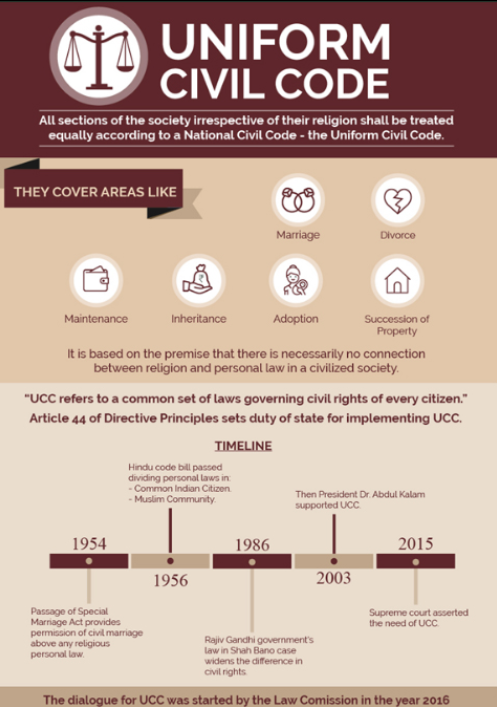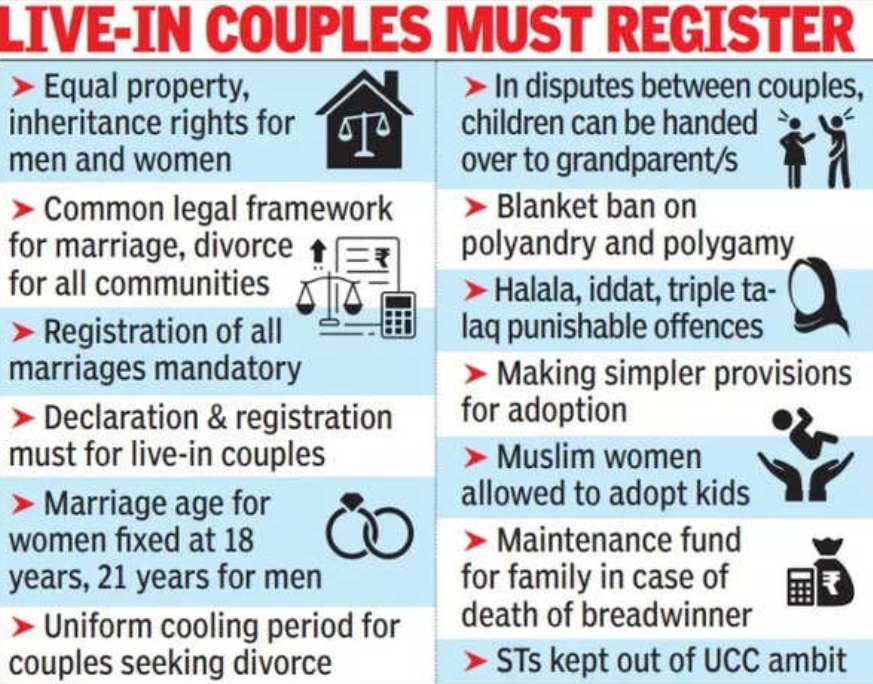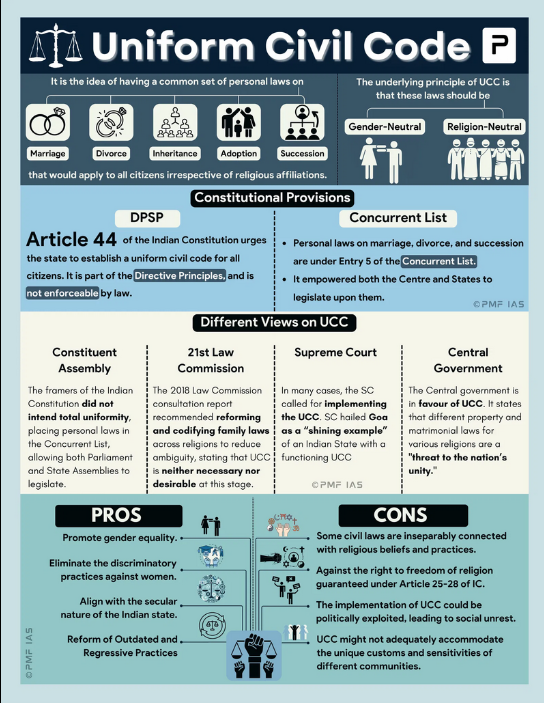The Uniform Civil Code (UCC) has long been one of India’s most debated constitutional goals — a vision of one law for all citizens governing personal matters like marriage, divorce, inheritance, and adoption, regardless of religion. In 2025, that vision took a decisive turn with the introduction and implementation of the UCC Bill in Uttarakhand, making it the first Indian state to bring uniformity to civil laws across communities.
But what exactly is the UCC Bill 2025? Why has it generated both praise and protest across the country? And, most importantly, how will it affect ordinary citizens — from families and working professionals to students and senior citizens?
This article breaks down the bill’s key provisions, the legal and social impact it will have, and what every Indian needs to know as the country moves closer to a unified civil legal system. Whether you support the reform or view it with caution, understanding the UCC is essential — because it may soon shape how you marry, inherit, and live.
1. Background & Legislative Journey
Article 44 of the Indian Constitution’s Directive Principles urges the state to endeavor to frame a Uniform Civil Code (UCC) “for all citizens” to promote unity and non-discrimination.
Uttarakhand took the lead, passing India’s first state-level UCC in February 2024 and enforcing it on January 27, 2025.
The scope includes marriage, divorce, inheritance, adoption, live-in relationships, and succession, applying equally to all religions.
2. India's UCC Bill 2025: Key Provisions Under the Bill
- Mandatory Registration of marriages (within 60 days) and live-in relationships (within 30 days).
- Uniform inheritance and succession rules, replacing religious systems like Hindu coparcenary or Sharia.
- Ban on polygamy, halala, child marriage, and similar discriminatory practices.
- Criminal penalties for non-registration—up to 3 months jail or ₹10,000 fine for live-ins.
- Equality of children, eliminating the concept of illegitimacy.
3. Status of Implementation in Uttarakhand
- 1.5 lakh total registrations of marriages, divorces, and wills within four months—suggesting enthusiastic adoption.
- A mere 28 live-in couple registrations in 110 days—reflecting reluctance or privacy concerns.
- No penalties yet enforced—officials are prioritizing awareness and voluntary compliance.
4. What the UCC Means for Everyday Life
a. Individual & Family Rights
- Simplified legal framework: No need to remember varying personal laws depending on religion.
- Gender justice: Women gain equal footing in inheritance, divorce, custody—ending longtime discrimination.
- Legitimacy rights: Children born from live-in relationships will have rights and protections.
b. Privacy & Cultural Concerns
- Criticism arises over state intrusion into private life, with live-ins feeling scrutinized.
- Listing personal romantic choices in a government registry and forcing public notation are widely contested.
c. Legal Clarity & Efficiency
5. Challenges & Controversies
1. Cultural Resistance
- Minority groups fear their traditions and personal laws are at risk.
- Concerns include majority bias—exemptions for Scheduled Tribes or ambiguity around tribal customs.
2. Fundamental Rights at Stake
- Religious freedom vs uniform law: Critics argue the UCC undermines Article 25 (freedom of religion).
- Privacy concerns: Mandatory registration of relationships touches upon personal liberty.
3. Legal, Political & Administrative Hurdles
- Constitutional amendments likely needed to enable nationwide implementation.
- Fear of social unrest and backlash, as seen in Nagaland and Meghalaya protests.
- Uttarakhand Bar Association protests reflect concern over shifting legal work to government centers.
6. Next Steps & National Outlook
Uttarakhand High Court hearing ongoing on aspects like live-in registration, with Centre responding by July 14.
Other BJP-governed states (e.g., Gujarat, Assam) monitoring Uttarakhand’s model; national rollout requires political consensus and amendments.
Judiciary’s earlier Shah Bano, Sarla Mudgal judgements highlight past pushbacks and serve as legal precedents supporting UCC.
7. Voices of Society & Civil Reaction
- “The State is inside your bedrooms… moral policing given state sanction.”
— Journalist on live‑in registration requirement
From r/AskIndia:
- “In most states… it is just Hindu Civil law masquerading as one… not ready or adequate.”
8. What This Means for You, the Common Man
Know Your Rights:
- UCC assures gender-neutral inheritance, legitimacy for live-in children, and uniform divorce rules.
Mandatory Compliance:
- If in a live-in relationship or married, you must register within prescribed timeframes or risk penalty.
Stay Informed:
- Monitor state rollouts and court rulings—Uttarakhand’s real-world data and legal decisions will shape future policies.
Benefit from Efficiency:
- Legal processing may become faster, simpler, and cheaper.
Protect Privacy:
- Recognize that personal details may be recorded—advocate for anonymized records and safeguards.
Engage in Civic Dialogue:
- Participate in public consultations, influence the final shape of UCC to ensure inclusivity and sensitivity.
9. Conclusion
The India UCC Bill 2025 marks a transformative move toward legal uniformity and gender equality—reshaping marriage, succession, and personal rights across communities. While it promises clarity and fairness, its success hinges on balancing state involvement, religious freedom, and societal acceptance.
As Uttarakhand leads the way, what unfolds there—be it court verdicts, citizen acceptance, or amendments—will shape a national blueprint. Ultimately, the UCC story is not just legal; it’s about how everyday Indian families choose to adapt, object, or embrace uniformity in their personal lives.


